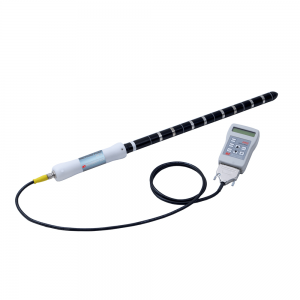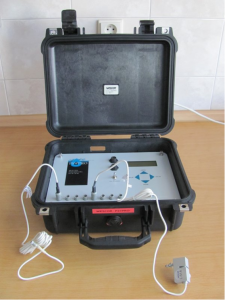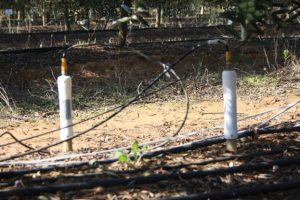Service
PLANT ECOPHYSIOLOGY
Staff
Antonio Díaz Espejo (Scientific Manager)
Alfonso Pérez Martín (OPI Specialist Technician)
Contact
email: servicioecofisiologia@irnas.csic.es
Plant Ecophysiology Service
Instituto de Recursos Naturales y Agrobiología de Sevilla Avda. Reina Mercedes, 10 41012 – Sevilla
Phone: 954624711
Prices
Service Requests
“Once the PDF has been downloaded and the application has been completed, it will be sent to the e-mail address indicated in the document itself, together with the complementary documentation required”.
Description of the service
The Plant Ecophysiology Service of the Institute of Natural Resources and Agrobiology of Seville (IRNAS) is part of the Scientific-Technical services of the center and its mission is to perform measurements of eco-physiological variables in plants. These eco-physiological variables provide information about the “tools” that plants have to respond to changes in their environment and about their capacity to withstand, face, or even recover from episodes of stress, such as drought, heatwaves or infection by a pathogen.
The measurements offered by the Plant Ecophysiology Service encompass the most common variables considered in ecology and agronomy projects: water relations (water potential and osmotic potential), gas exchange (stomatal conductance, photosynthesis, mesophyll conductance to CO22, chlorophyll fluorescence) and automatic measurements with sensors in soil (soil water content) or in the plant (dendrometers, sap flow, leaf turgor). These measurements are suitable to take into account in research projects, where they can sometimes be difficult to carry out due to the cost of equipment or the specialization required for their setup and proper execution, as well as in companies conducting field or greenhouse trials studying different crop varieties or water and phytosanitary treatments seeking to evaluate the use of new crop management practices or the application of new products.
From our service, we attend to research groups from IRNAS-CSIC, other CSIC centers, Universities or joint centers, as well as public and private companies that request our measurements or advice.
The researcher in charge of the Plant Ecophysiology Service is Antonio Díaz Espejo, a CSIC tenured scientist with extensive experience and international reputation in Plant Ecophysiology, and the technician in charge of providing the service is Alfonso Pérez Martín, Ph.D. in Biology, also with extensive experience in this type of measurements across a wide range of species.
|
Plant Ecophysiology Laboratory (EV-IRNAS) Scientific instrumentation obtained through the following projects: Update and improvement of the Plant Ecophysiology Laboratory equipment. Acquisition of a new portable infrared analyzer. (PAIDI 2020, IE19_206 CSIC-IRNAS) Portable infrared and chlorophyll fluorescence analyzer (Licor 6400) (Ministry of Science and Innovation Infrastructure Program 2014, CSIC13-1E-2213). |
Quality Commitment
The service has a Letter of Commitment (in Spanish) on the IRNAS website, focusing on two main aspects: The service has available on the IRNAS website a Commitment Charter focused on two main aspects: 1) offering measurements with a high degree of precision and accuracy and 2) customer satisfaction with the results obtained and the interaction with the scientific and technical staff of our service throughout the process. Currently, it has obtained ISO 9001 certification with reference number ES133745-1. Actualmente, ha obtenido la certificación de la norma ISO 9001 con número de referencia ES133745-1.
Services
Measurement of gas exchange in leaves and soil
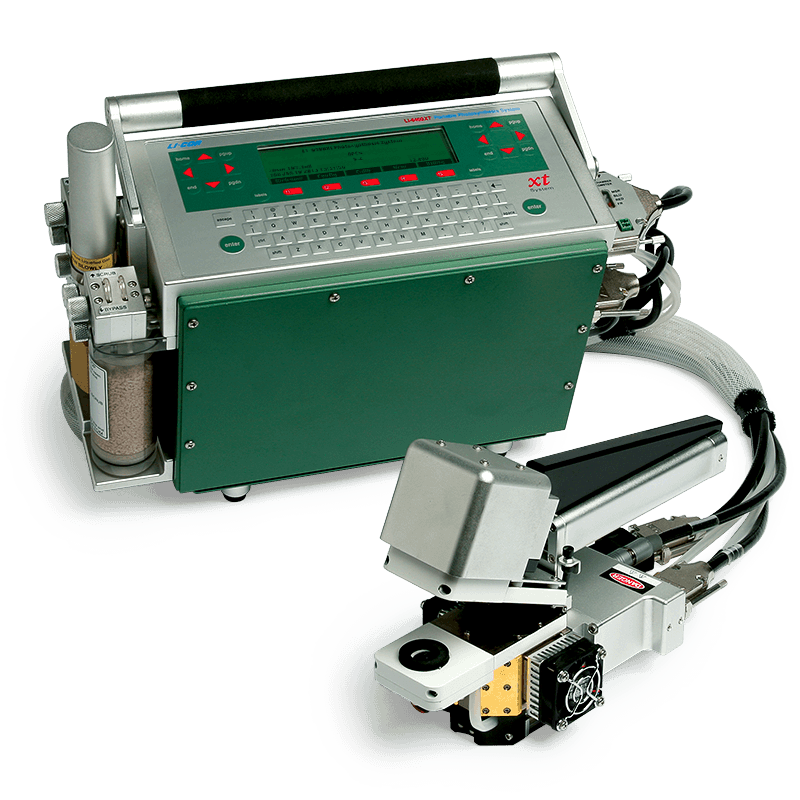
In our service we offer measurements of photosynthesis and stomatal conductance rates performed with a portable infrared analyzer, from which we obtain information about the operational state of our plant. These measurements are fundamental in ecological and agronomic studies as they allow for the detection of differences between species or applied treatments.
Additionally, in our service we provide measurements of other variables related to the previous ones, such as the rate of mesophyll conductance to CO2, electronic transport or photoinhibition, all through combined measurements of gas exchange with chlorophyll fluorescence.
Finally, our service also offers the performance of photosynthetic response curves to environmental variables such as light, CO2 or atmospheric water vapor demand, from which interesting parameters like leaf photosynthetic capacity can be obtained.
To carry out all of the above, we have a wide variety of measurement chambers that will be used depending on the type of measurement requested:
The gas exchange measurements have the ISO 9001 Quality Certificate, guaranteeing that the entire measurement and analysis process is carried out correctly and that the final result is fully satisfactory and trustworthy for the client.
Measurement of sap flow in trees
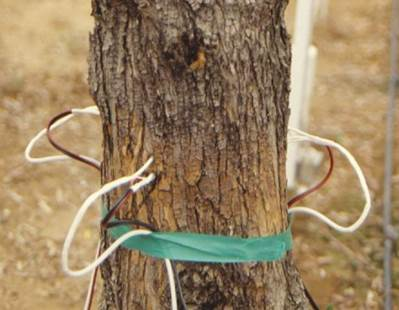
This technique, in addition to estimating transpiration, under certain conditions can also serve to estimate stomatal conductance automatically, which is innovative. Stomatal conductance is a very sensitive and reliable indicator of water stress and can be useful in irrigation management studies in Agriculture.
The use of this service also requires the use of a datalogger (see features on loggers in this same service).
Measurement of leaf turgor with ZIM sensors
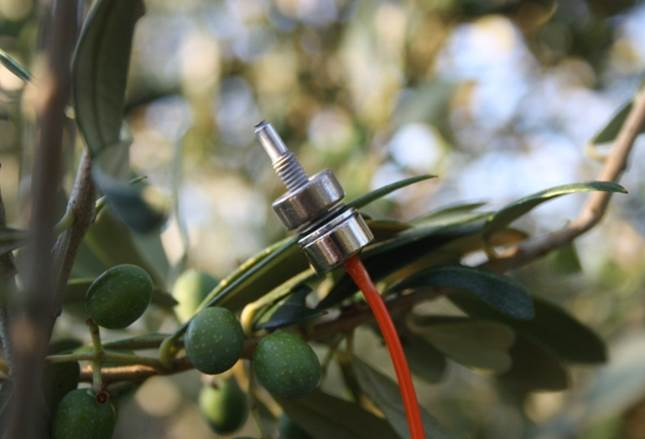
In our service, we have a technique that allows its in vivo estimation under field conditions using button-shaped sensors that are installed on the leaves and allow for the continuous and automatic measurement of the daily dynamics of turgor potential.
Numerous studies conducted in various species demonstrate that the measurements thus made are closely correlated with water potential and maximum stomatal conductance, allowing for the rapid and simple identification of water stress states.
Use of dataloggers for sensor deployment in the field
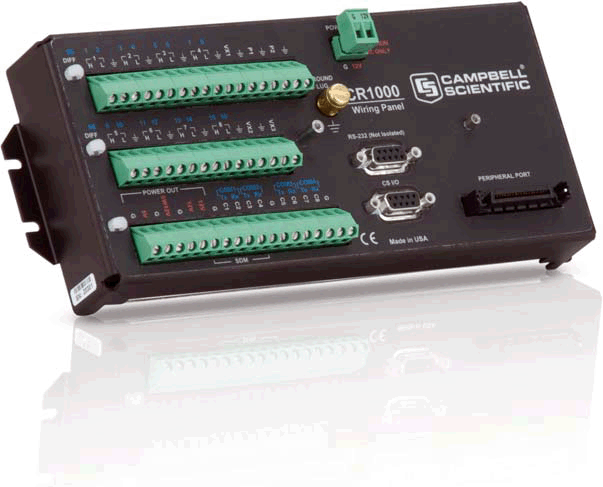
Measurement of leaf water potential
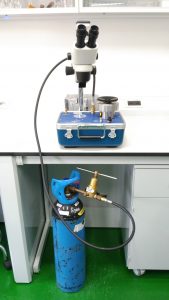
Measurement of leaf osmotic potential
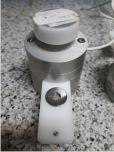
Measurement of trunk and fruit diameter fluctuations
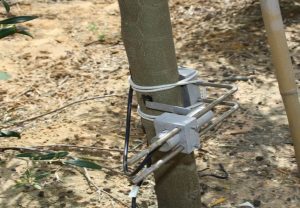
Continuous measurement of soil water content
